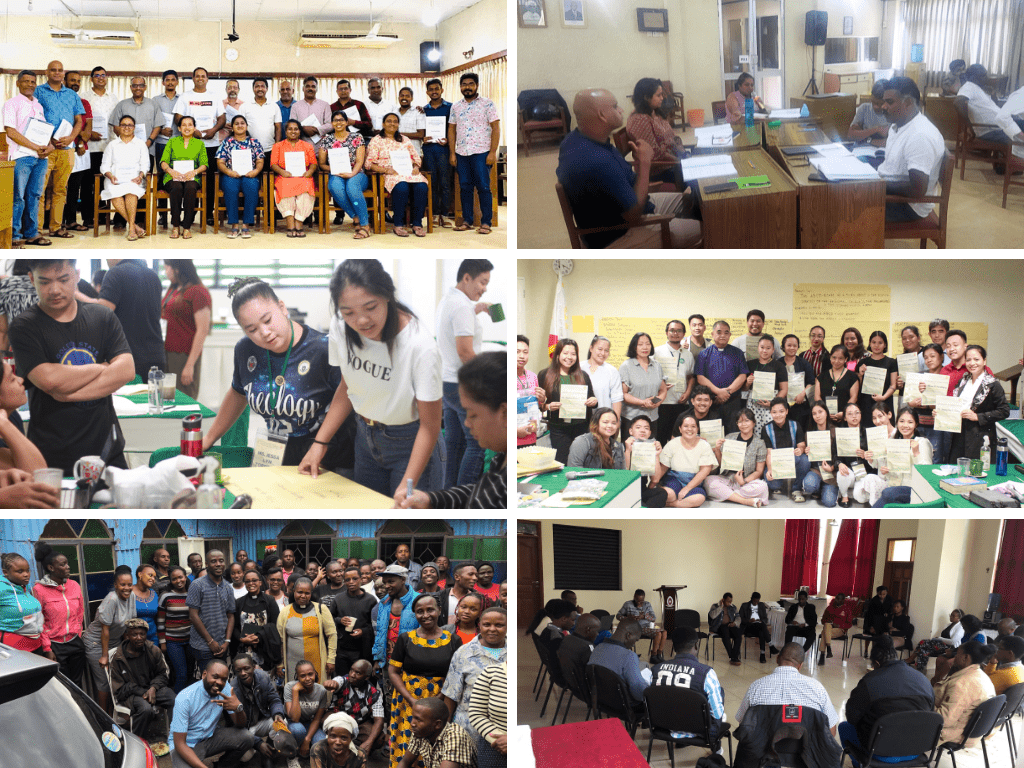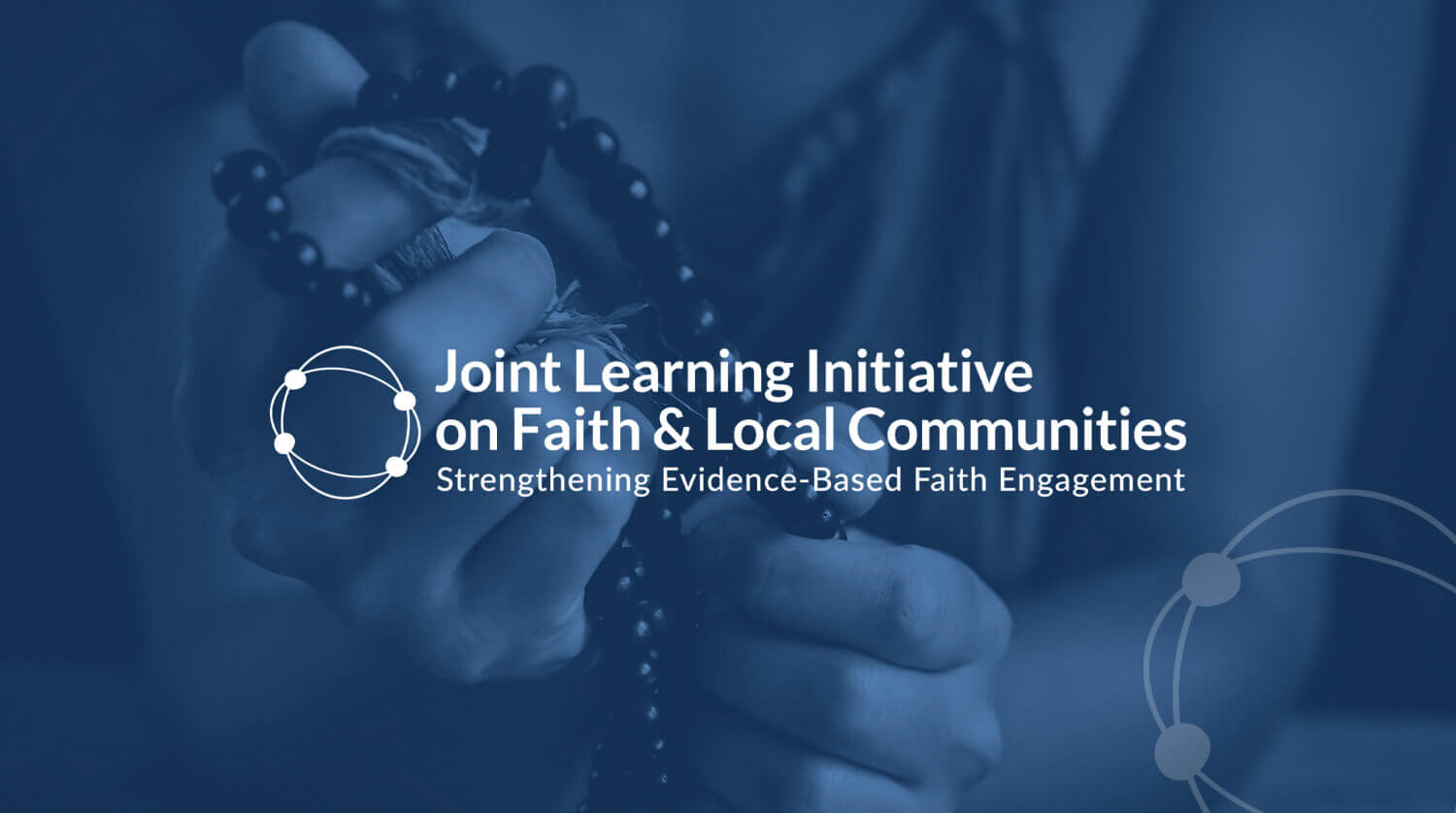JLI completed a pilot implementation program for a new Training on Religions and Development Research course, which it developed in partnership with five Anglican colleges around the world. The course accompanies JLI’s flagship State of the Evidence on Religions and Development report, and aims to strengthen the capacity of faith actors to demonstrate the impact of their work through research and evidence in policy, practice, and donor spaces.
The course was developed in 2023 and 2024 with financial support from Trinity Church Wall Street. JLI partnered with five Anglican colleges – Leonard Kamungu Theological College (Malawi), St Paul’s University (Kenya), St Andrew’s Theological Seminary (the Philippines), College of Transfiguration (South Africa), and the Cathedral Institute of Education and Formation (Sri Lanka) to co-create the course materials using collaborative, participatory processes. The colleges identified topics of priority interest, shared preferences in terms of course format and activities, reviewed course teaching materials, and co-created the course reading lists.
Based on the pedagogical principles of participation, ownership, solidarity, creativity, and flexibility, the course prioritizes the input and involvement of every student in the classroom. The course consists of three modules, and covers topics such as religion and peacebuilding, gender, health, environment, and decolonization. It also includes training on how to do research, and incorporates practical modules where faith actors are supported to lead their own research projects.
Between March and September 2024, the five colleges piloted the course with their local communities during 2024, engaging over 100 students worldwide, including clergy and community members, practitioners, and researchers. Each college adapted the course to their own contextual needs and priorities, with the course being delivered both online and in person, as weekly sessions over six months as well as intensive four day residentials. Graduates of the course are now in the process of completing independent research projects on issues such as religion and climate change, education, gender, decolonization, and sexuality. The course materials are now available to access on JLI’s website.
Participants of the course shared valuable insights about their learning experience, highlighting the impact it has had on their personal and professional development:
“This training has great influence towards my work in the future since it has helped me to change my mindset towards development of my family, religion or even the nation. I will be able to do things on my own with confidence.”
Student of the Religions and Development Research course pilot
“Through doing research as a faith community, I think we can come up with solutions for the issues present in our parishes, and we can come up with evidence-based programs and activities that would compliment our mission and vision as a church.”
Student of the Religions and Development Research course pilot
“my participation in this project have given me a lot of ideas when it comes to teaching my students about research. I am thinking of incorporating readings and activities for my students to be more engaging and aware about what research can do their ministry in the future.”
Instructor of the Religions and Development Research course pilot
For further enquiries, contact Dr Olivia Wilkinson ([email protected])

Top: students from Cathedral Institute for Education and Formation, Sri Lanka, 2024
Middle: Students from St Andrew’s Theological Seminary, the Philippines, 2024
Bottom: Students from St Paul’s University, Kenya, 2024






